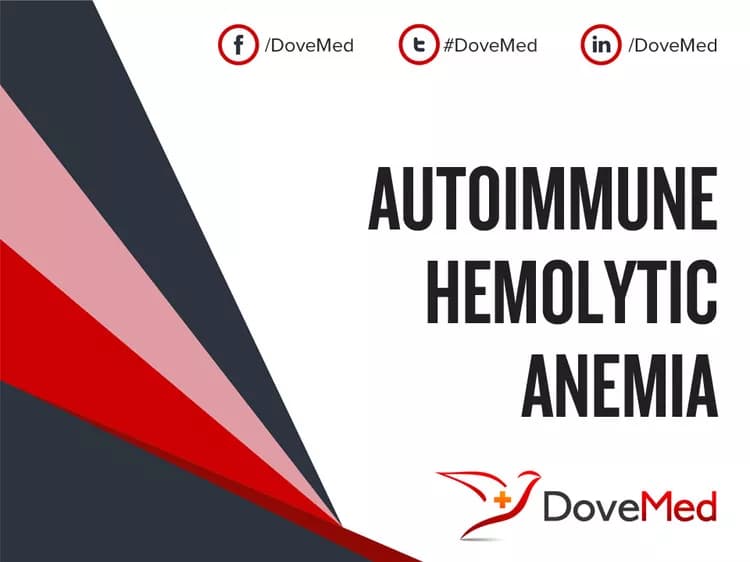What are the other Names for this Condition? (Also known as/Synonyms)
- Hemolytic Anemia due to Autoimmunity
- Immune Complex Hemolytic Anemia
- Immunohemolytic Anemia
What is Autoimmune Hemolytic Anemia? (Definition/Background Information)
- Autoimmune Hemolytic Anemia is a rare, medical condition characterized by the premature destruction of red blood cells and their removal from the bloodstream
- Normally, when blood cells die, the body’s bone marrow produces more cells to replace them. However, individuals with Autoimmune Hemolytic Anemia, cannot produce blood cells quick enough to meet the body’s requirements
- The common signs and symptoms of this condition include rapid heartbeat, skin pallor, weakness, fatigue, and shortness of breath
- Autoimmune Hemolytic Anemia is treated with steroids and immunosuppressive medications. The prognosis of the condition is good with early and appropriate treatment
Autoimmune Hemolytic Anemia is broadly classified to 2 types, based on the type of autoantibodies causing the illness. These include:
- Warm Autoimmune Hemolytic Anemia
- Cold Autoimmune Hemolytic Anemia
Who gets Autoimmune Hemolytic Anemia? (Age and Sex Distribution)
- Autoimmune Hemolytic Anemia can occur in individuals of all ages (children and adults)
- Women are more likely to be affected by this condition than men
- All racial and ethnic groups are affected
What are the Risk Factors for Autoimmune Hemolytic Anemia? (Predisposing Factors)
Risk factors associated with Autoimmune Hemolytic Anemia include:
- Female gender
- Use of certain drugs
- Viral infections
It is important to note that having a risk factor does not mean that one will get the condition. A risk factor increases one's chances of getting a condition compared to an individual without the risk factors. Some risk factors are more important than others.
Also, not having a risk factor does not mean that an individual will not get the condition. It is always important to discuss the effect of risk factors with your healthcare provider.
What are the Causes of Autoimmune Hemolytic Anemia? (Etiology)
- Autoimmune Hemolytic Anemia is caused by the premature destruction of red blood cells (RBCs) in the body
- The condition is caused by the malfunctioning of the immune system, producing antibodies against the RBCs; antibodies bind to the red blood cells and destroy them
The possible causes of Autoimmune Hemolytic Anemia are:
- Infections such as infectious mononucleosis, viral pneumonia, and mycoplasma infection
- Autoimmune disorders such as
- Certain drugs such as antibiotics, aspirin, naproxen, and ibuprofen
- Certain cancers such as lymphoma and chronic lymphocytic leukemia
- Autoimmune disorders such as systemic lupus erythematosus (SLE), ulcerative colitis, rheumatoid arthritis, Crohn’s disease, and scleroderma
Based upon the cause, Autoimmune Hemolytic Anemia can also be classified as:
- Primary Autoimmune Hemolytic Anemia (or Idiopathic Autoimmune Hemolytic Anemia, when the cause is unknown)
- Secondary Autoimmune Hemolytic Anemia
What are the Signs and Symptoms of Autoimmune Hemolytic Anemia?
The common signs and symptoms of Autoimmune Hemolytic Anemia include:
- Skin pallor
- Muscle pain
- Headache
- Nausea and vomiting
- Diarrhea
- Fatigue
- Shortness of breath
- Rapid heartbeat
- Dark brown urine
How is Autoimmune Hemolytic Anemia Diagnosed?
The first step towards establishing a diagnosis is to rule out the causes of hemolytic anemia, such as sickle cell disease, thalassemia, glucose-6-phosphatase deficiency (G6PD), and other conditions.
The diagnosis of Autoimmune Hemolytic Anemia may include:
- Complete evaluation of medical history along with a thorough physical exam
- Complete blood count
- Reticulocyte count
- Urine hemoglobin test to detect the presence of hemoglobin in urine
- Serum LDH level test
- Serum bilirubin level test
- Serum haptoglobin level test
- Examination of peripheral blood smear under a microscope by a pathologist
- Coombs test
- In severe cases, a bone marrow biopsy may be helpful
Many clinical conditions may have similar signs and symptoms. Your healthcare provider may perform additional tests to rule out other clinical conditions to arrive at a definitive diagnosis.
What are the possible Complications of Autoimmune Hemolytic Anemia?
The complications of Autoimmune Hemolytic Anemia may include:
- Enlargement of the heart
- Heart failure
- Excessive fatigue that may make it difficult for an individual to carry out his/her day-to-day activities
How is Autoimmune Hemolytic Anemia Treated?
The treatment of Autoimmune Hemolytic Anemia may include:
- Treatment of the underlying cause of anemia
- Mild cases usually do not require any treatment, as the condition is self-resolving
- Medications are given to treat the severe cases and this may include the following:
- Corticosteroids to suppress the immune system
- Other immunosuppressive drugs
- Splenectomy (removal of spleen)
- Blood transfusion
How can Autoimmune Hemolytic Anemia be Prevented?
- Currently, there is no effective prevention of Autoimmune Hemolytic Anemia
- Early diagnosis and treatment can help prevent complications
What is the Prognosis of Autoimmune Hemolytic Anemia? (Outcomes/Resolutions)
- The prognosis of Autoimmune Hemolytic Anemia depends upon the underlying cause. In a majority of cases, it is good with early and appropriate treatment
- If Autoimmune Hemolytic Anemia remains undiagnosed for a long duration of time, it can cause severe complications such as heart failure
- Both children and adults may be affected; however, the prognosis of the condition in children is usually better than in adults. In some cases, in children, the condition gets better on its own after a short duration of time, without any treatment
Additional and Relevant Useful Information for Autoimmune Hemolytic Anemia:
The following DoveMed website link is a useful resource for additional information:
https://www.dovemed.com/diseases-conditions/blood-disorders/
Related Articles
Test Your Knowledge
Asked by users
Related Centers
Related Specialties
Related Physicians
Related Procedures
Related Resources
Join DoveHubs
and connect with fellow professionals


0 Comments
Please log in to post a comment.